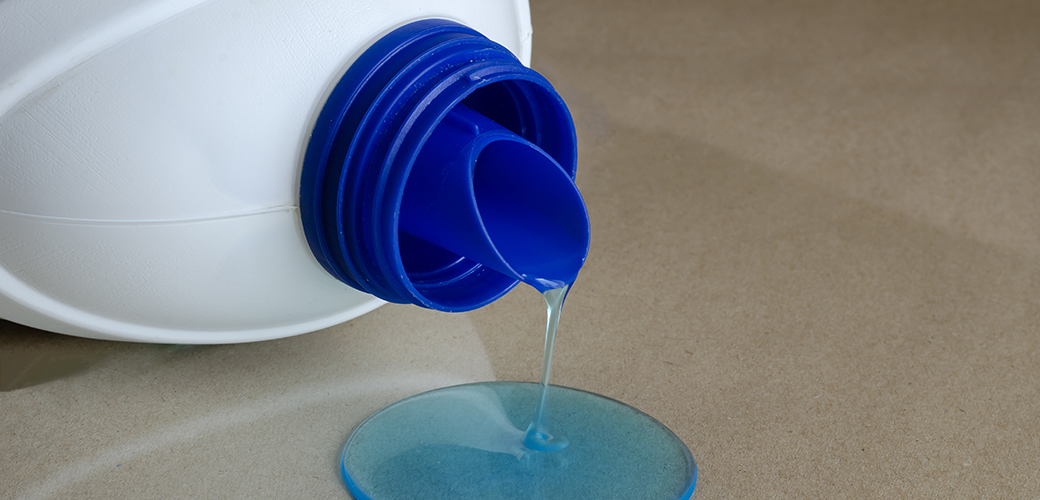

This month’s Animal Poison Control Center (APCC) case of the month shows us how everyday cleaners can be potentially problematic in a pet’s home. Let’s see which of Poppy’s symptoms led to concern and how APCC was able to assist in getting her back to her old self.
One night, at around 9PM Poppy, a five-month-old kitten, became too inquisitive for her own good. She found a small amount of cleaning product, Ultra-Q128, a disinfectant used to kill bacteria and viruses, spilled on the floor. Poppy’s pet parents suspect she licked some of this residue.
About one hour later, her pet parents notice that Poppy has begun drooling, panting and vomited a greenish fluid. They became quite concerned and immediately took Poppy to the veterinarian.
When Poppy was admitted to the hospital, she had a fever over 104 and was noted to be swallowing hard. The treating veterinarian took radiographs which showed nothing significant. But during her overnight stay at the clinic, veterinary staff noted that Poppy’s health began to decline.
By the next morning, she did not want to eat and was still showing signs that she was nauseous. It was now evident that Poppy had oral ulcerations or chemical burns on her tongue. This would explain why she wasn’t eating as this can be quite painful. It was at this point that Poppy’s pet parents remembered the possible exposure to the cleaning product.
For additional information and help with exposure to the chemical, Poppy’s pet parents reached out to APCC. Through a field of questions, it was discovered that this product is a concentrated cationic detergent that has the potential to cause significant corrosive injury to tissues. Some common symptoms from an oral ingestion of this product include depression, salivation, anorexia, oral ulcers, vomiting and pain. It is also common for exposed animals to have an elevated body temperature. And the reason behind the oral ulcers not initially showing up? Cationic detergent exposure can have a delay of up to 12 hours before oral ulcers develop.
APCC staff worked with Poppy’s scared pet parents and recommended numerous treatment options to help her including pain control, a medicated mouth wash, antibiotics and intravenous fluids. Our staff also recommended to run bloodwork to reveal if any underlying infections occurred or if other treatments were needed. Poppy would need to be continually monitored for esophageal stricture, symptomatic care and supportive care to aid in the road to recovery.
Two days later, Poppy seemed better. After her pet parents called APCC back, it was discussed that Poppy should be discharged from the vet with medication to deter nausea and a gastrointestinal protectant. Her pet parents were also given a list of signs to watch for at home.
Through the great teamwork of Poppy’s pet parents, their veterinarian and the staff at APCC, Poppy was able to get back to her playful self once again.
If you believe that your pet has ingested cleaner or any other potentially toxic substance, please contact your veterinarian or the ASPCA Animal Poison Control Center at (888) 426-4435 immediately for assistance.
Source: Read Full Article
